5 Networking Hacks for Healthcare Professionals
Even with everything you have on your plate as a healthcare professional, there are still effective ways to grow your connections. Here’s how networking for healthcare professionals works in today’s modern landscape.

Have you ever heard the saying, “It’s not what you know, it’s who you know”?
That statement is always thrown around in the corporate world, especially for salespeople. But there’s no way that it’s accurate, right?
If you were a salesperson, you’d want to know that the close rate of face-to-face meetings with prospects within your network has a 40% close rate.
That statistic puts the odds in your favor, especially if you’re selling the latest technology in smoothie blenders door-to-door.
OK, I’ll fess up. If you’re reading this blog post, you’re most likely not a salesperson. Instead, you’re a healthcare professional trying to increase your own network.
Maybe you’re a med student who’s just about to graduate, didn’t like anybody in the organization you worked for during your clinicals and want to find a place where you fit in. That’s oddly specific but it happens. After all, 89% of failed new hires lose their jobs because of a cultural mismatch.
If you had a healthy network, though, it’s much easier to land a job you’re comfortable in. Networking fills 85% of all jobs according to Sir Richard Branson’s organization, Virgin.
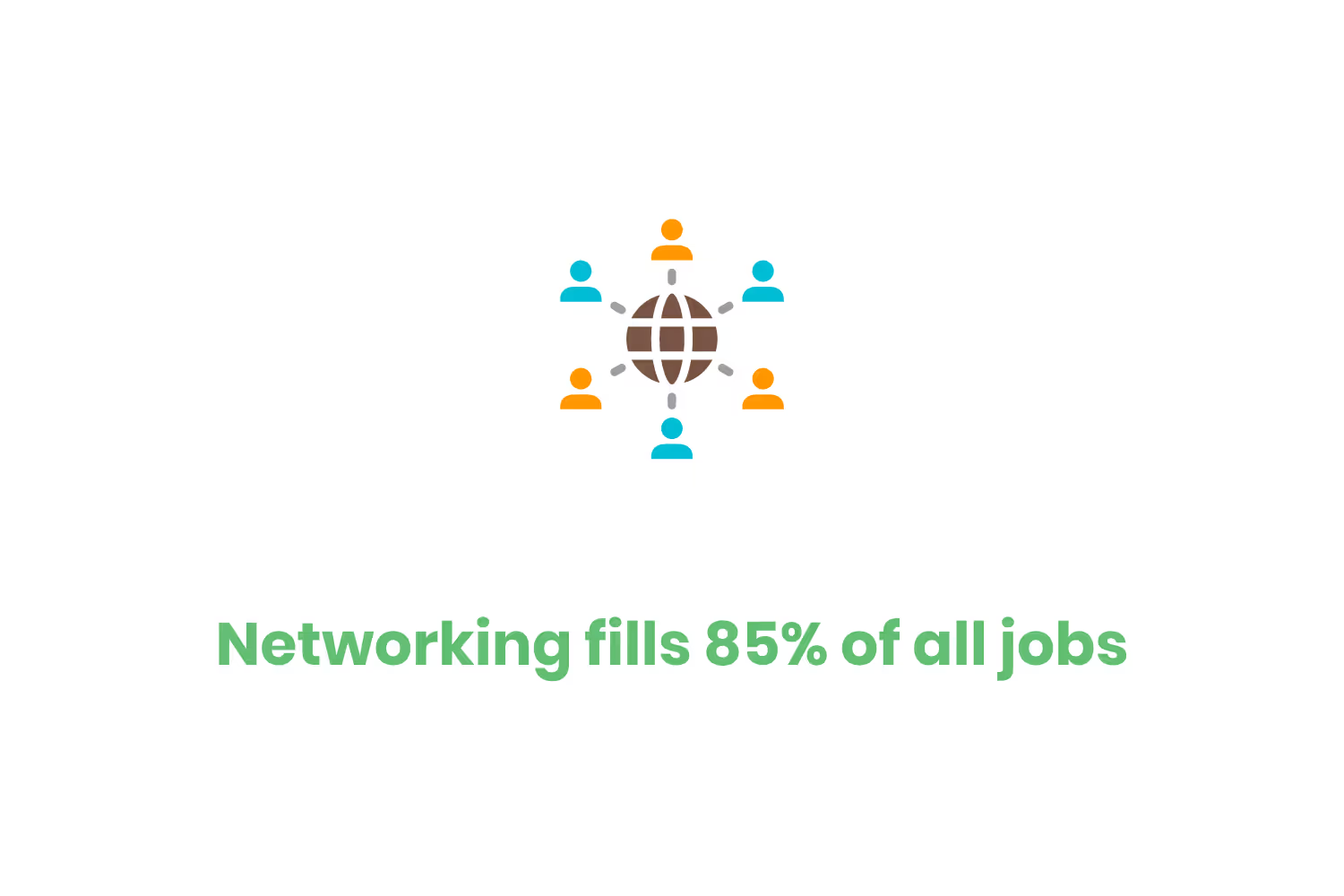
But there’s no denying that networking as a healthcare professional is a little bit harder than for sales professionals. It’s not like you’re cold calling those who work in the same industry as you, trying to find common ground to make it easier to convince them to buy your product. As Forbes puts it, “...successful business is built on good relationships.”
On your end of things, you’re dealing with patients on a daily basis to the point where you have no time on your hands for anything else or you’ll face burnout. That’s not to say that what you’re doing is a bad thing, healthcare’s entire purpose is to treat people. Instead, it’s to point out how difficult it is to network in your position.
However, even with everything you have on your plate, there are still effective ways to grow your connections. Here’s how networking for healthcare professionals works in today’s modern landscape.
Social Media Outreach & Direct Messaging
The number one way to network, bar none, is through social media.
Other options I listed within this blog post are helpful, sure, but where else can you tap into a massive user-base of professionals whenever you want? Every other option happens during a limited time that you have to schedule your workweek around. Social media platforms are always available, waiting for you to use them as a means to grow your connections.
The next question is, where do you start?
Here are some of the top social media platforms right now…
- Youtube
- TikTok
You simply don’t have time to make an account on each one and figure them out. By the time you did, a new, hot platform would come out. I like to categorize social media services into two categories; content-based and interaction-based.
Content-based platforms are those that focus more on what’s uploaded than interaction between users. Youtube, Reddit and Instagram fall within this category. Interaction-based platforms are those that focus more on connecting individuals and like-minded groups of people together. Facebook, Twitter, and LinkedIn focus on this aspect.
TikTok is a hybrid of those two categories. You have to make content videos in order to grow a follower base, but if you do then there’s a lot of user interaction capabilities built into it.
Now that I’ve explained how I categorize different platforms, which should you use to grow your network? Create accounts on those that focus on interaction.
Let’s get more specific, every professional will tell you that LinkedIn is where you should start to grow your network. They’re not wrong in their recommendation. One of the best places to grow your professional relationships is on LinkedIn. Believe it or not, their mission is a good explanation of their services, “...connect the world’s professionals to make them more productive and successful.”
Once you make your profile, search for people you already know to start your virtual network. They’ll start a connection with you, then you’ll be able to connect to people that they know and soon you’ll amass a web of contacts.
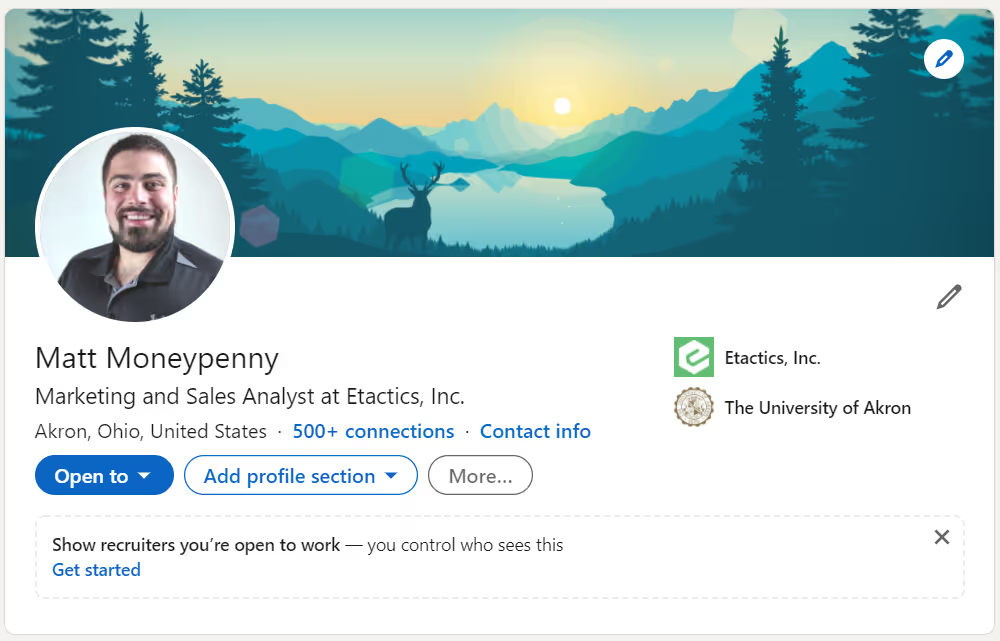
Don’t feel like you need to know everyone that you send a connection request to. You’re trying to grow your network which requires meeting new people.
Once you’re satisfied with the introductory amount of connections you’ve made, reach out to them with a simple message saying that you’re trying to meet other professionals within the space.
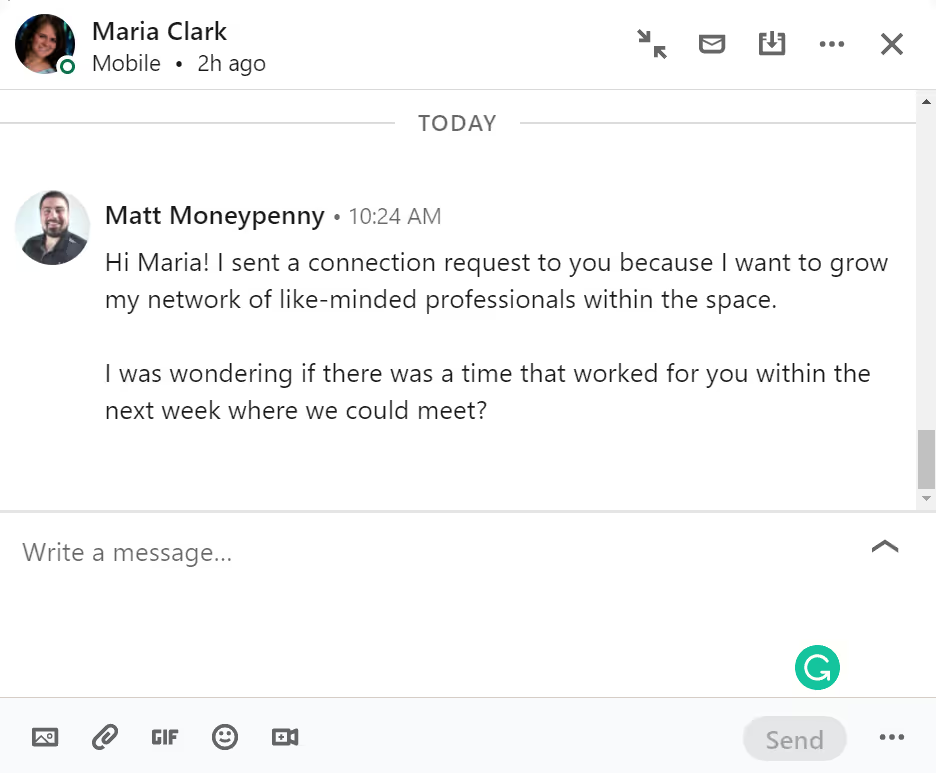
When you type out what you’re going to say, keep in mind that this is a direct message. Or, in social media lingo, a “DM”. In other words, it’s not an email so you don’t have to form it in that context. Instead, write out a semi-formal message that explains why you’re messaging them within a couple of sentences.
Keep in mind that this is a free-to-use social media platform for business professionals. Thus, active users receive sales-related direct messages often. You won’t want someone to read your message and think that you’re trying to sell them something.
Luckily, there are private social media websites that only qualified medical professionals have access to. These are an option to grow your network as well…
Those listed are the top three most popular, private networks for qualified medical professionals.
Each of them are worth looking into if you’re trying to find networking opportunities.
Social Media Group Interactions
If you’ve watched TV at any point within the past few years, you’ve likely seen an advertisement from Facebook mentioning their Groups.
You definitely saw the tech giant’s ad if you watched Superbowl LIV in 2020.
The purpose of that super-expensive advertisement was to say, “Hey, there’s a group for anybody, even for those people with the most specific interests.” It might have also been an effort to overcome their negative brand image after their data scandal in 2018, but I digress.
Facebook isn’t the only social media that provides the ability to create communities. LinkedIn also offers similar functionality.
Use these to your advantage. They’re a great way to meet other professionals within your space.
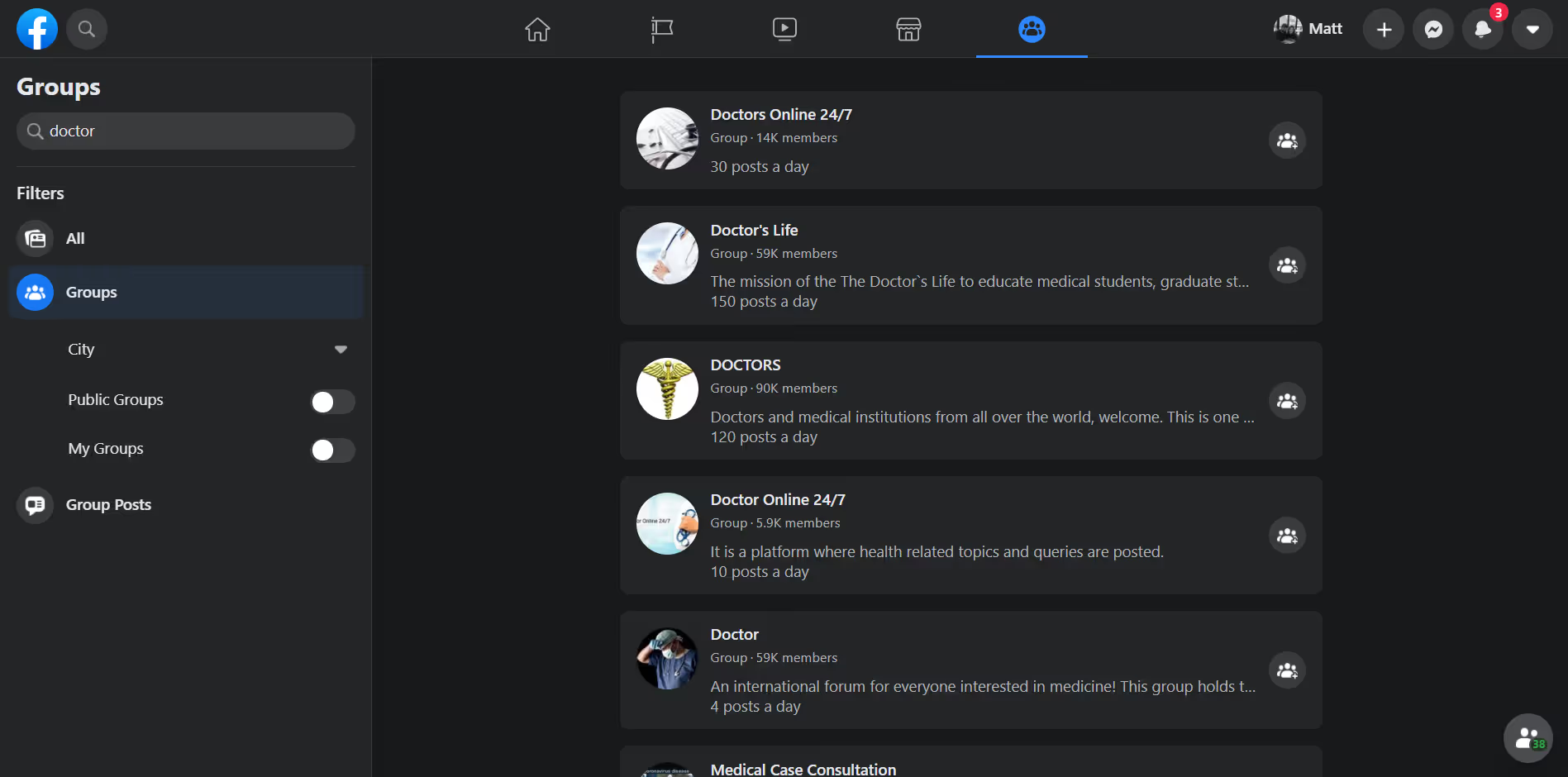
I searched for Facebook Groups related to the word “Doctor” within the platform and it produced thousands of results. Some of them have over 90,000 members. Since so many people are in that group, that must mean that it’s reliable, right? Wrong.
It doesn’t take a detective to figure out that a lot of these communities aren’t reliable. If you think about joining one, take a look at it before you do.

While you’re previewing a Group, look at the posts and comments. If you notice anything that looks like spam, avoid joining. In fact, as a medical professional don’t even bother joining those that don’t properly vet their members.
Instead, look for the private ones.
Creators and administrators can set up preliminary questions to qualify members who want to join.
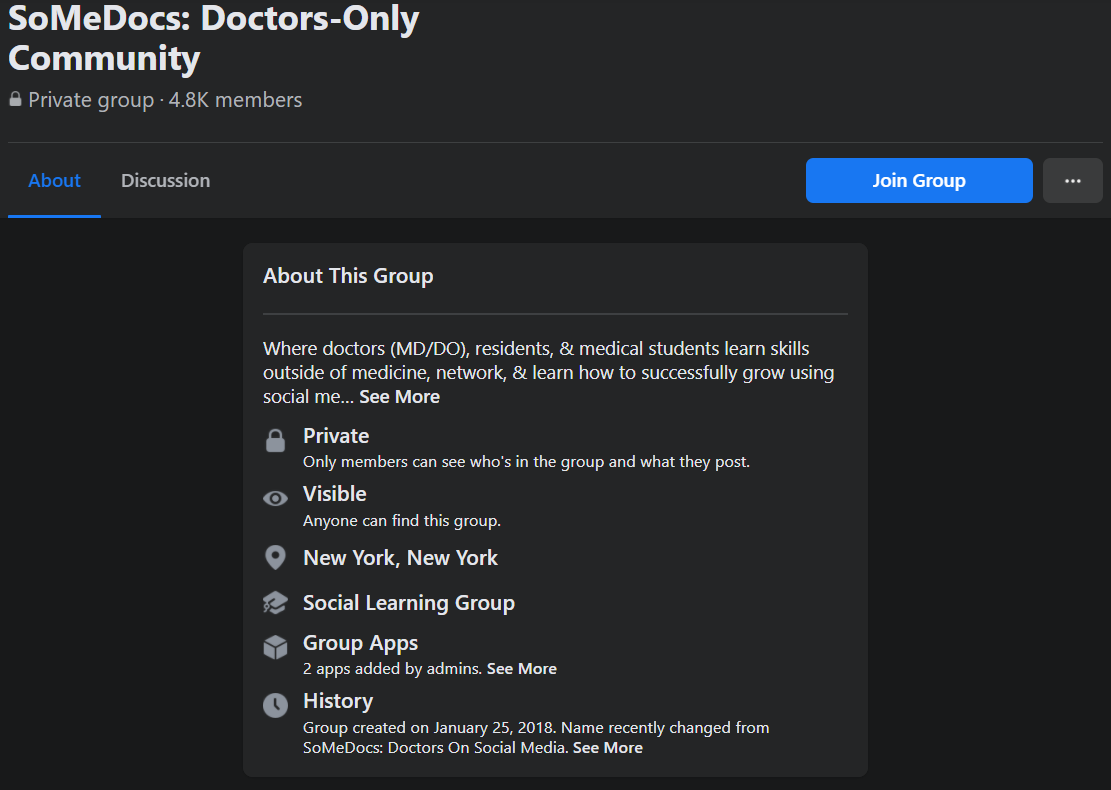
The image above is one of a private Facebook Group called SoMeDocs: Doctors-Only. This is the perfect example of a community you should join. They even list networking as one of their primary purposes for existing (score!).
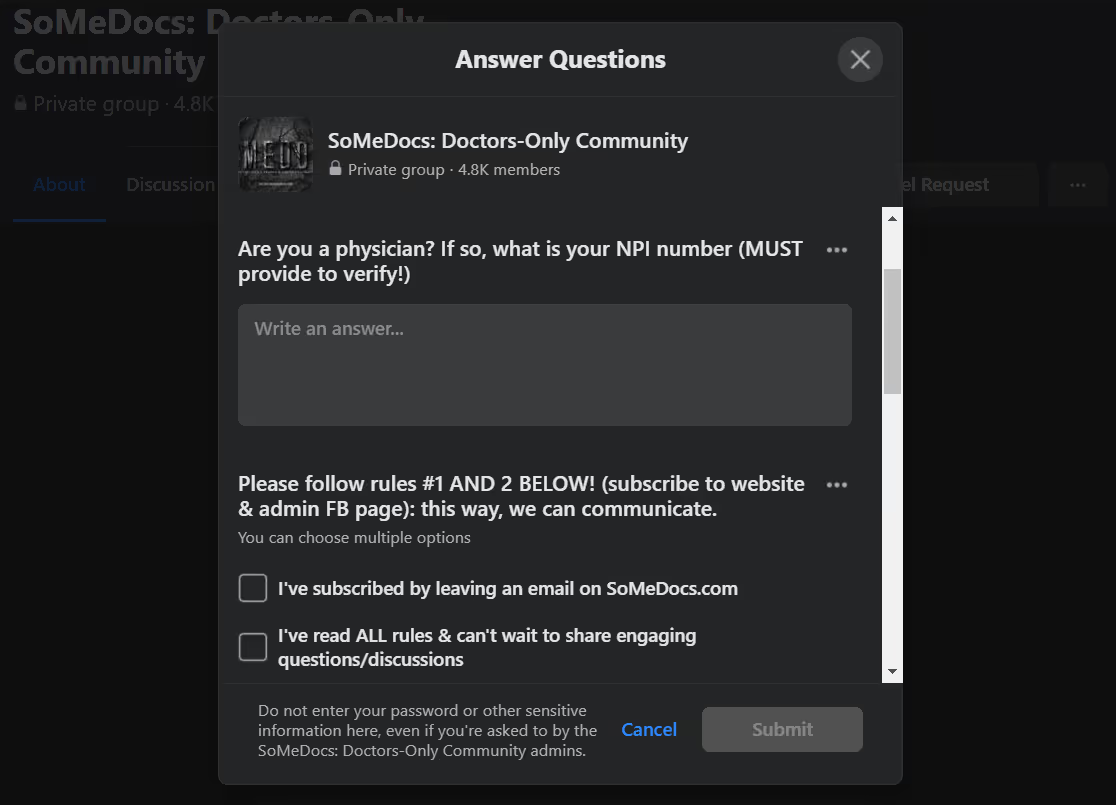
When you click the “Join Group” button, a pop-up window appears that asks you a series of questions. Each question requires an answer and asks for information only verified medical professionals can answer. Private Facebook Groups are much more reliable to use for networking because its creators and administrators vet each member prior to joining.
Once you’re in, introduce yourself to the group. I guarantee the community will welcome you with open arms and be equally excited to network with you.
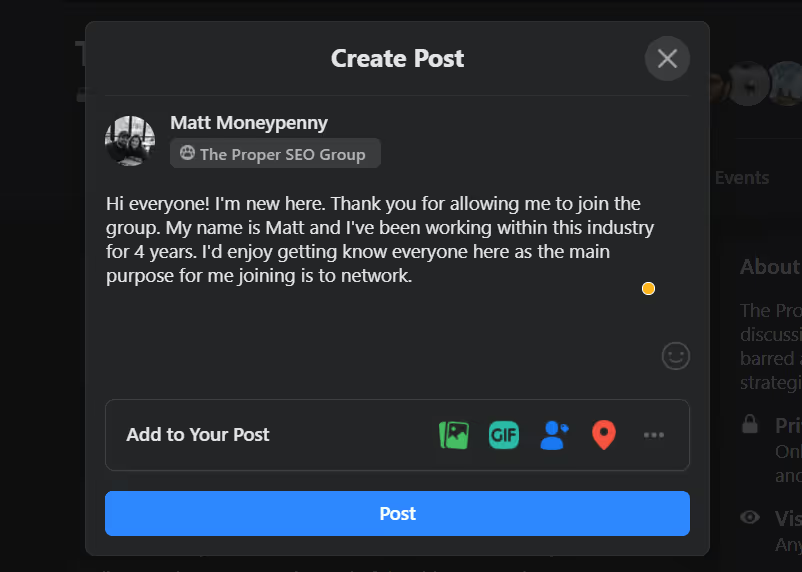
Take Locum Tenens Contracts
If you’re reading this section of the blog post, I know for certain that you’re a healthcare professional. The strategies I’ve listed prior to this section could also apply across industries. But the locum tenens contracts only pertains to the medical world, as you know.
For the sake of explanation, a locum tenens contract is like a substitute teacher...except it’s a doctor. They’re needed when physicians at other healthcare facilities are on vacation, attending a conference, out sick, or on leave.
The number of locum tenens contracted doctors essentially doubled from around 26,000 in 2002 to 48,000 in 2016. Present-day, 94% of facilities admit to sourcing these contracted physicians within the past year. There are many reasons why this number is trending upwards including demand, shortages and organizational consolidation.
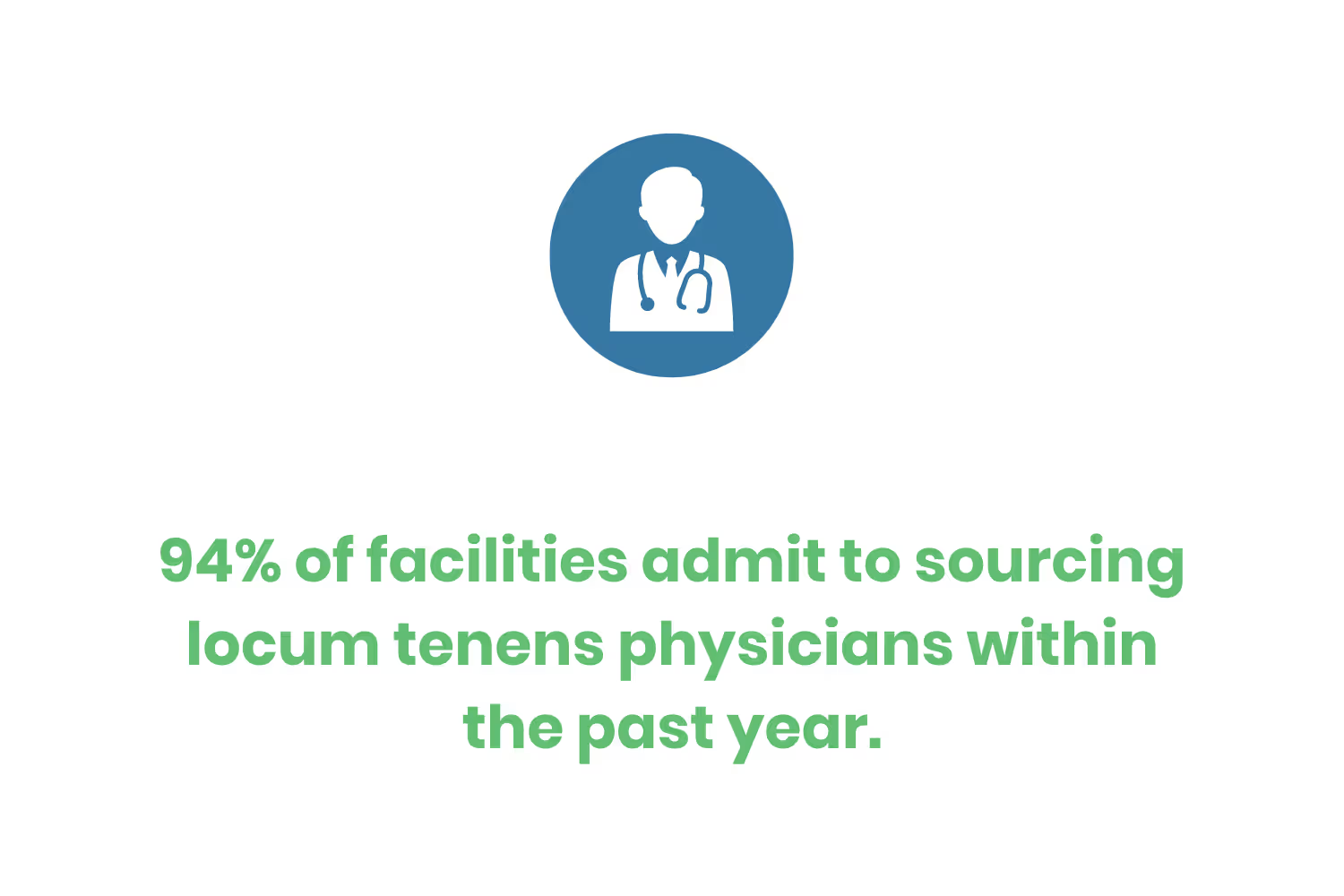
The main takeaway, though, is that facilities want locum tenens physicians and that they provide you with a great opportunity to network. You show up for a few days, treat patients and collaborate with the staff that the facility has on hand.
Before jumping in headfirst into these contracts, understand that they also mean you’re going to work during holidays.
So, where do you start?
Well, you should conduct research on placing organizations. Unless you’re reading this blog post, then I’ve conducted it for you.
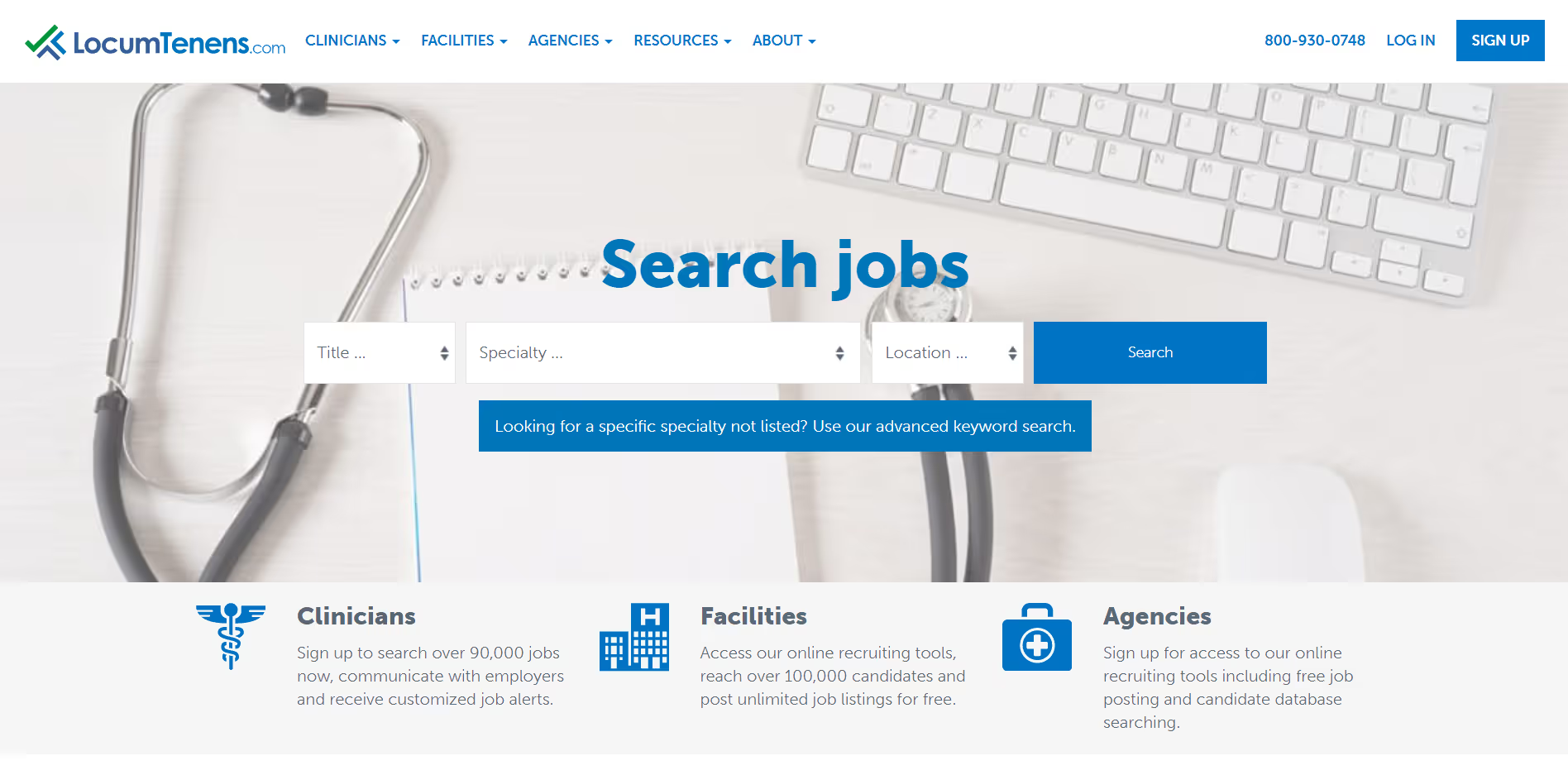
LocumTenens.com is an online job board and full-service placing agency that helps you every step of the way. You enter your title, specialty and any location preference that you have and then the website will populate with available positions.
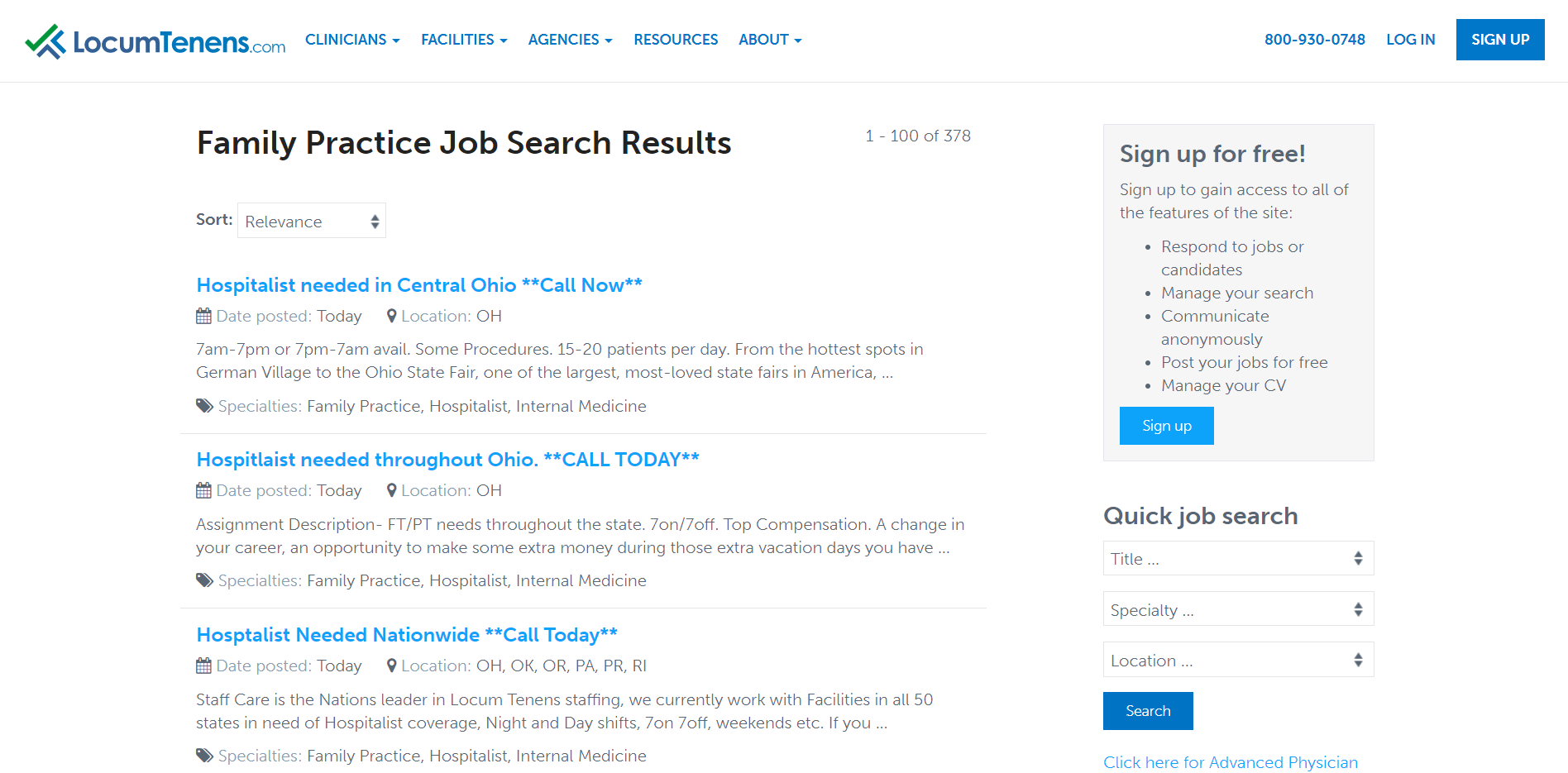
Attend Events When They Come Back
Conferences and events continue to be one of the best ways to network.
If you worked within the corporate world and I told you that talking to attendees at conferences could net you 20% more customers, you’d jump out of your chair with excitement and find the next one to attend ASAP.
Naturally, it’s not that easy within the healthcare industry. Attendees at a business conference are usually other organizations...which are also clients. That’s how the corporate world works, the closest people in your network are usually your customers.
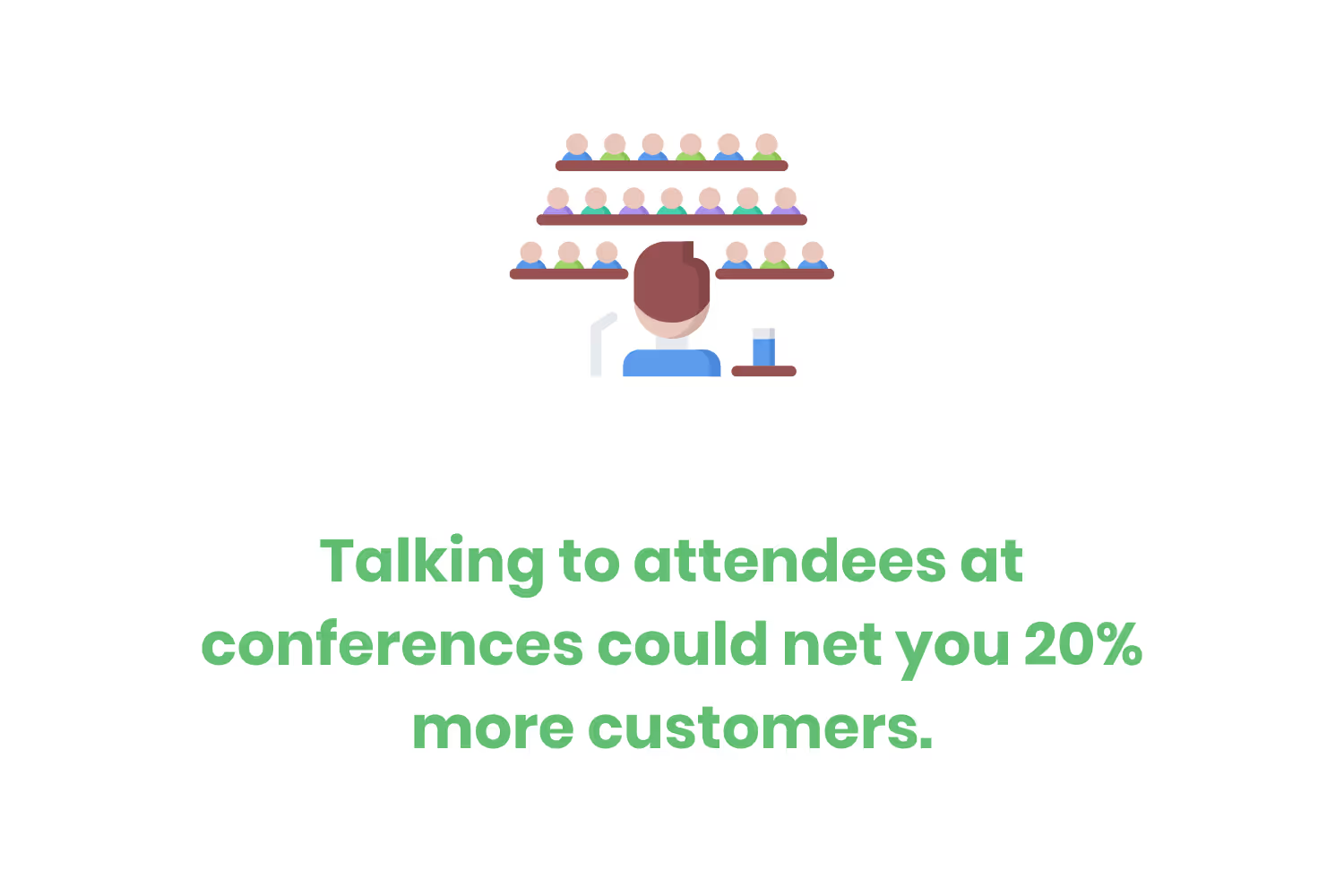
Medical conferences, though, don’t have clients. Imagine going to an event and seeing a sea of patients walking to each booth. That would be an odd sight.
Instead, attendees at these types of events include other doctors and vendors trying to get you to buy their products. Also known as a great opportunity to expand your connections.
Once you’re there introduce yourself to as many people as possible. Everyone’s there for the same reason, they want to meet other experts in their industry. Also, attend workshops and speaking events throughout. Choose the ones that interest you the most so that you find like-minded individuals.
Don’t be afraid to attend events that don’t deal with your specialty. You’re there to learn more about others within your industry. Expand your horizons and watch your connections grow.
Finally, this goes without saying but bring business cards. It's much easier for others to remember who you are with those little pieces of cardstock. I guarantee after you hand out a few of these at the event you’re attending that they’ll look you up and send you a connection request on LinkedIn.
Join a Society
As a medical professional, you’re a part of an elite workforce.
That statement sounds a little over-the-top but it’s not far-fetched. Doctors and nurses land towards the top of the list of the most respected professions in the world.
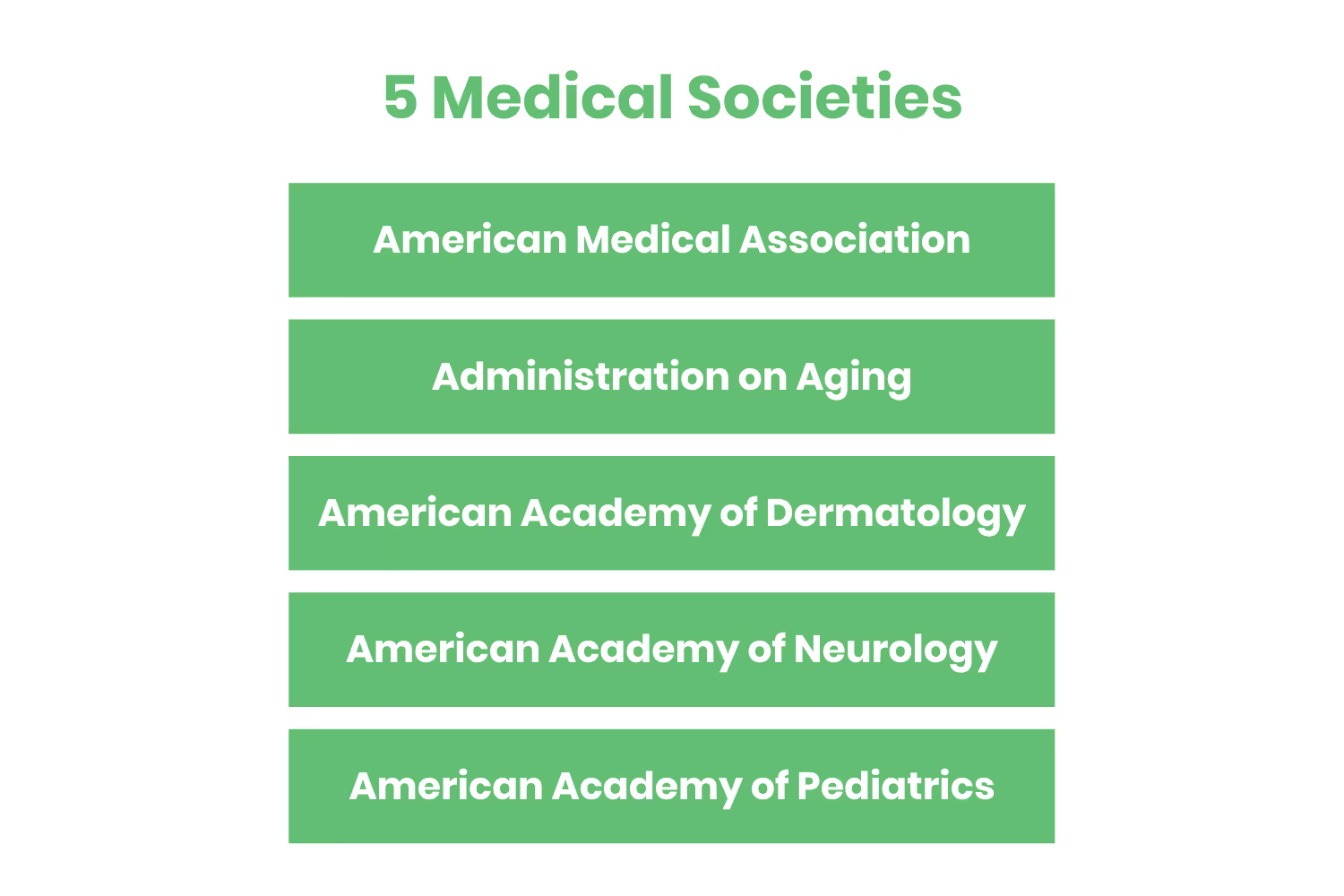
But what does that mean for you?
Well, there’s a lot of societies available for you to join. These organizations exist for the sole purpose to provide a place to connect with others that work in the same profession.
Those in the group work within the same specialty as you, thus they’ve likely experienced similar scenarios while on the job. As a result, these organizations also function as an indirect support group, which is especially helpful in combating physician burnout.
Conclusion
When some people hear the word “networking” they cringe. It includes putting yourself out there and introducing yourself to strangers.
But, once you get over any anxiety you may have you’ll soon realize that many others feel the same way. They actively want you to reach out to them, learn about who you are, and your experiences.
It’s not as hard as it sounds, all it takes is a little bit of courage and know-how. Once you’ve figured out your strategy it’s just a matter of time before your network of healthcare professionals weaves a path for you to succeed.
Emphasize your product's unique features or benefits to differentiate it from competitors
In nec dictum adipiscing pharetra enim etiam scelerisque dolor purus ipsum egestas cursus vulputate arcu egestas ut eu sed mollis consectetur mattis pharetra curabitur et maecenas in mattis fames consectetur ipsum quis risus mauris aliquam ornare nisl purus at ipsum nulla accumsan consectetur vestibulum suspendisse aliquam condimentum scelerisque lacinia pellentesque vestibulum condimentum turpis ligula pharetra dictum sapien facilisis sapien at sagittis et cursus congue.
- Pharetra curabitur et maecenas in mattis fames consectetur ipsum quis risus.
- Justo urna nisi auctor consequat consectetur dolor lectus blandit.
- Eget egestas volutpat lacinia vestibulum vitae mattis hendrerit.
- Ornare elit odio tellus orci bibendum dictum id sem congue enim amet diam.
Incorporate statistics or specific numbers to highlight the effectiveness or popularity of your offering
Convallis pellentesque ullamcorper sapien sed tristique fermentum proin amet quam tincidunt feugiat vitae neque quisque odio ut pellentesque ac mauris eget lectus. Pretium arcu turpis lacus sapien sit at eu sapien duis magna nunc nibh nam non ut nibh ultrices ultrices elementum egestas enim nisl sed cursus pellentesque sit dignissim enim euismod sit et convallis sed pelis viverra quam at nisl sit pharetra enim nisl nec vestibulum posuere in volutpat sed blandit neque risus.

Use time-sensitive language to encourage immediate action, such as "Limited Time Offer
Feugiat vitae neque quisque odio ut pellentesque ac mauris eget lectus. Pretium arcu turpis lacus sapien sit at eu sapien duis magna nunc nibh nam non ut nibh ultrices ultrices elementum egestas enim nisl sed cursus pellentesque sit dignissim enim euismod sit et convallis sed pelis viverra quam at nisl sit pharetra enim nisl nec vestibulum posuere in volutpat sed blandit neque risus.
- Pharetra curabitur et maecenas in mattis fames consectetur ipsum quis risus.
- Justo urna nisi auctor consequat consectetur dolor lectus blandit.
- Eget egestas volutpat lacinia vestibulum vitae mattis hendrerit.
- Ornare elit odio tellus orci bibendum dictum id sem congue enim amet diam.
Address customer pain points directly by showing how your product solves their problems
Feugiat vitae neque quisque odio ut pellentesque ac mauris eget lectus. Pretium arcu turpis lacus sapien sit at eu sapien duis magna nunc nibh nam non ut nibh ultrices ultrices elementum egestas enim nisl sed cursus pellentesque sit dignissim enim euismod sit et convallis sed pelis viverra quam at nisl sit pharetra enim nisl nec vestibulum posuere in volutpat sed blandit neque risus.
Vel etiam vel amet aenean eget in habitasse nunc duis tellus sem turpis risus aliquam ac volutpat tellus eu faucibus ullamcorper.
Tailor titles to your ideal customer segment using phrases like "Designed for Busy Professionals
Sed pretium id nibh id sit felis vitae volutpat volutpat adipiscing at sodales neque lectus mi phasellus commodo at elit suspendisse ornare faucibus lectus purus viverra in nec aliquet commodo et sed sed nisi tempor mi pellentesque arcu viverra pretium duis enim vulputate dignissim etiam ultrices vitae neque urna proin nibh diam turpis augue lacus.


.avif)

